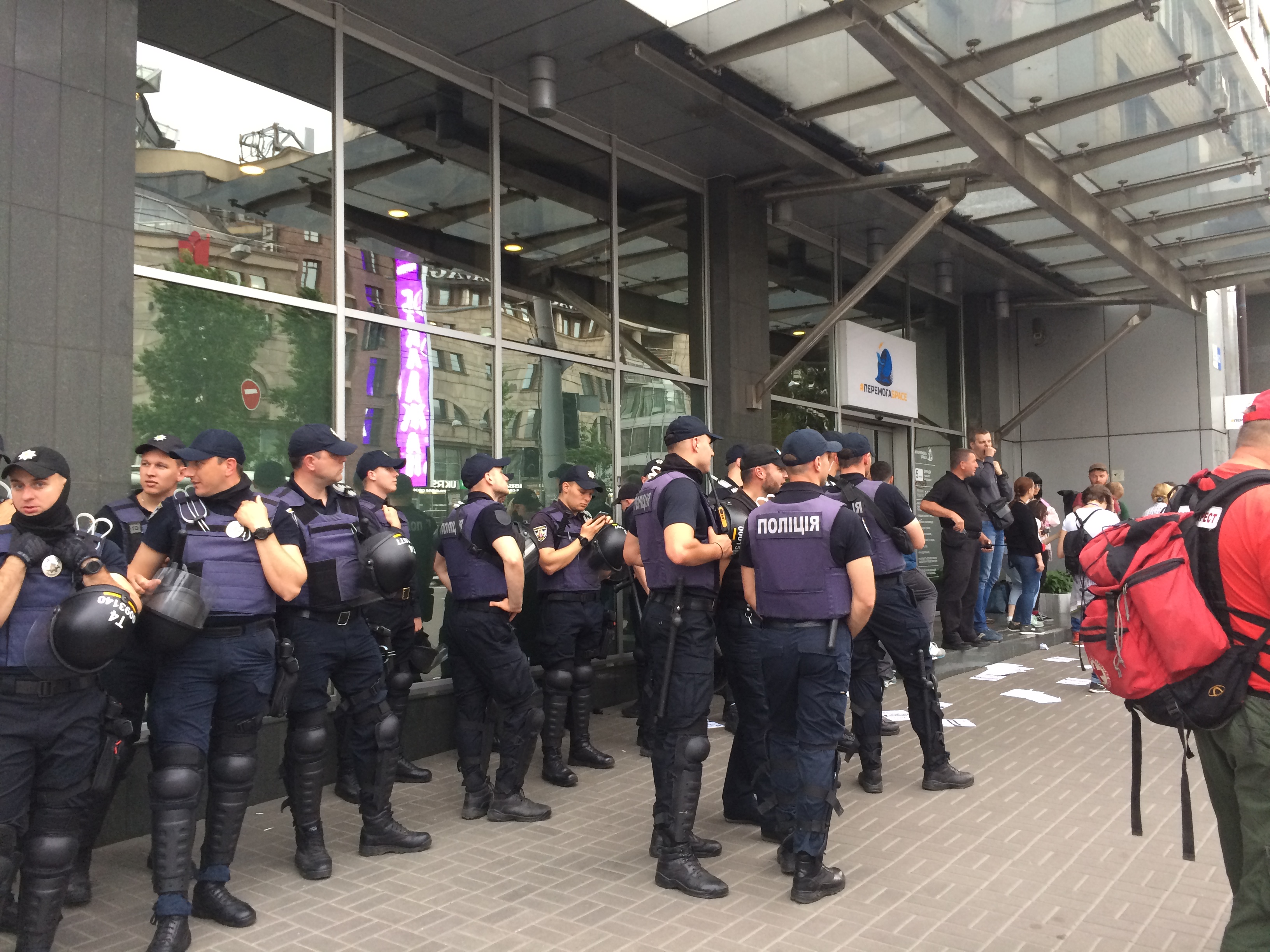Although 50 protesters attempted to disrupt a human rights talk organized by Amnesty International on May 16, police secured the area, allowing the 50 or so attendees to go on with the event as scheduled.
“Amnesty International must be banned, forbidden in Ukraine,” said Yuriy Noeviy, a Svoboda Party activist who organized the protest, adding that he and his supporters had come to decry what he called “anti-Europe, Ukrainephobic” extremism.
The event, a talk about Russia’s tactics to suppress its LGBT community, had originally been set for May 10. (LGBT is an acronym that stands for lesbian-gay-bisexual-transgender.)
That event was rescheduled after 20 radical activists arrived, threatened participants and barred people from the venue. Its organizers at the time criticized Kyiv’s police for their refusal to stop the attack.
This time, the anti-gay rights demonstrators were met by dozens of Kyiv police officers, who’d been called in earlier that day to provide security at the event held at 7 p.m. on Peremoga Space, not far from downtown Kyiv.
Denied entrance, the protesters, representing five groups, picketed the venue for an hour and a half, distributing flyers designed to stir resentment against the LGBT community.
Both Amnesty International and the far-right activists said that the protests were aimed at getting media attention.
“Our action got the result we were looking for,” said Noeviy, the organizer, who declined to give his full name but was identified by others at the event.
“We talked to journalists and showed a public position,” he said, saying that more actions would happen, “all days, all weeks, all months.”
But Noeviy was particular about what kind of media attention he received, calling the Kyiv Post “a liberal outlet.”
“Western media is no different than Russia Today,” he said.
When asked to elaborate on their public position, Noeviy said, “I will stop speaking with you. If you want to get an answer from me, don’t make that face.”
Another anti-gay rights activist, a computer programmer in Kyiv who didn’t give his full name, spoke about his views.
“When you’re told that men with men is fine, this is propaganda,” he said, saying that Europe and the West were forcing Ukraine to “tolerate queers.”
“They’re not humans, they’re subhumans.”

Kyiv city police secure an Amnesty International event on Peremohy Avenue, May 16. (Aisha Down)
Maria Guryeva, communications director for Amnesty International, said the activists were targeting Amnesty International in order to get attention—and to scare members of the LGBT community.
“Many of the activists use media to make calls to violence,” she said, adding that attacks against LGBT events and minorities in Ukraine had risen over the past year.
However, said Guryeva, she didn’t think the protests and attacks reflected rising discriminatory sentiment in Ukraine.
“The people who do these attacks are all the time the same,” she said, adding that she recognized many of the protesters in front of the event.
The problem, she said, was impunity. “If the police wanted to deal with this, they could easily,” she said.
Instead, police had stood by when activists had shut down the previous event, on May 10.
“They didn’t know their obligation to protect people’s free speech. They said—no one beats you up, so what’s the problem?” she said.
“Ukrainian society is tolerant. People are good. There are just a few groups, a few perpetrators, who know that whatever they do, they won’t be punished.”
